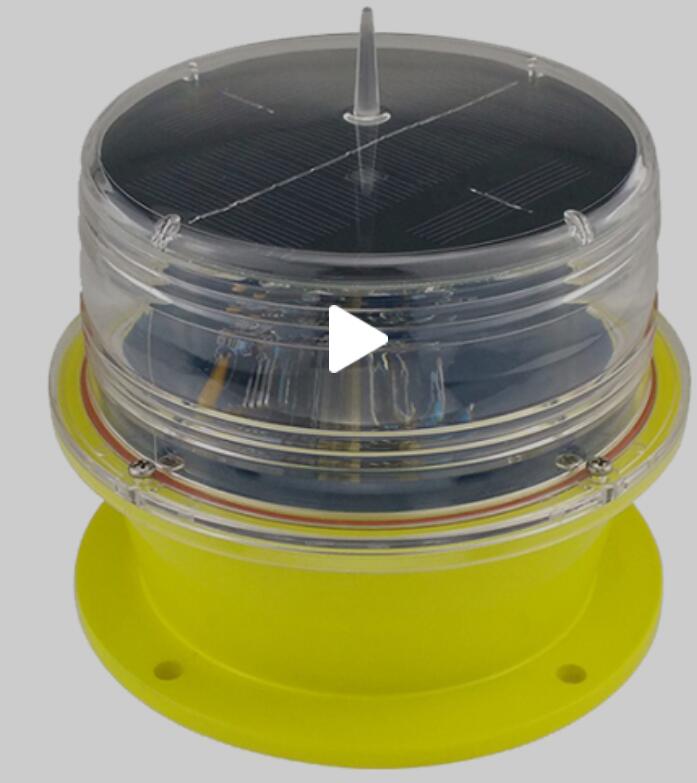Marine Solar Lights: Illuminating the Seas with Sustainable Brilliance
In the vast and often harsh marine environment, reliable lighting is crucial for safety, navigation, and various operations. Marine solar lights have emerged as a revolutionary solution, harnessing the power of the sun to provide illumination in a sustainable and efficient manner. These lights are transforming the way we approach lighting needs in the maritime world.
The Multifaceted Advantages of Marine Solar Lights
Renewable Energy Source: The most prominent advantage of marine solar lights is their reliance on solar energy. By capturing sunlight during the day, these lights convert it into electrical energy, which is then stored in batteries for use at night or during low - light conditions. This eliminates the need for fossil - fuel - based power sources, reducing carbon emissions and contributing to a more sustainable marine ecosystem.
Cost - Effectiveness in the Long Run: Although the initial investment in marine solar lights may be higher compared to traditional lighting options, their long - term cost - effectiveness is undeniable. With no fuel costs and relatively low maintenance requirements, they can save significant amounts of money over time. For example, a large - scale marine operation that uses solar - powered navigation lights can avoid the recurring expenses of fuel and frequent bulb replacements associated with conventional lights.
High Durability: Built to withstand the corrosive nature of the marine environment, marine solar lights are constructed from high - quality, corrosion - resistant materials. Their components are designed to endure saltwater, high humidity, and strong winds, ensuring a long lifespan. This durability makes them a reliable choice for marine applications where equipment needs to function consistently in challenging conditions.
Diverse Applications in the Marine Realm
Navigation Aids: Marine solar lights are extensively used as navigation lights on boats, ships, and buoys. They provide clear and consistent illumination, helping vessels navigate safely through the water, especially during the night or in poor visibility. For instance, solar - powered buoy lights mark channels, reefs, and other navigational hazards, ensuring that ships can avoid collisions and follow the correct routes.

Deck and Interior Lighting: On boats and ships, solar lights are used for both deck and interior illumination. They offer a convenient and energy - efficient way to light up the living and working areas on board. Solar - powered deck lights create a safe environment for crew members to move around at night, while interior solar lights can be used to provide ambient lighting in cabins, galleys, and storage areas.
| Marine solar lights |
| Marine solar light |
Marine Infrastructure Lighting: In the case of marine infrastructure such as jetties, piers, and coastal installations, solar lights are a popular choice. They can be used to illuminate walkways, staircases, and working areas, enhancing safety and accessibility. These lights also contribute to the overall aesthetics of the marine infrastructure, creating a more inviting and well - lit environment.
Technological Features and Innovations
Advanced Solar Panels: Marine solar lights are equipped with high - efficiency solar panels. These panels are designed to maximize sunlight absorption, even in low - light or overcast conditions. Some panels use monocrystalline or polycrystalline silicon technology, which offers excellent energy - conversion rates, ensuring that the lights can charge effectively throughout the day.
Intelligent Lighting Control Systems: Many modern marine solar lights come with intelligent lighting control systems. These systems can automatically adjust the brightness of the lights based on the ambient light conditions. For example, they can dim the lights during periods of low activity or increase the brightness in case of approaching vessels, optimizing energy consumption while maintaining optimal visibility.
Challenges and the Road Ahead
Weather - Dependent Performance: One of the main challenges of marine solar lights is their dependence on weather conditions. Cloudy days, storms, or long periods of low sunlight can reduce their charging efficiency and light output. However, advancements in energy storage technology, such as the development of high - capacity lithium - ion batteries, are helping to mitigate this issue by allowing for better energy storage and more stable power supply.
Integration with Existing Systems: Integrating marine solar lights with existing marine electrical systems can sometimes be a complex task. Compatibility issues may arise, especially when retrofitting older vessels or infrastructure. But as technology progresses, more standardized and user - friendly integration solutions are being developed.
Marine solar lights are a game - changer in the marine lighting industry. Their numerous advantages, wide - ranging applications, and continuous technological advancements make them an essential part of modern marine operations. As we strive for a more sustainable and efficient maritime future, marine solar lights will undoubtedly play an even more significant role in illuminating the seas.
